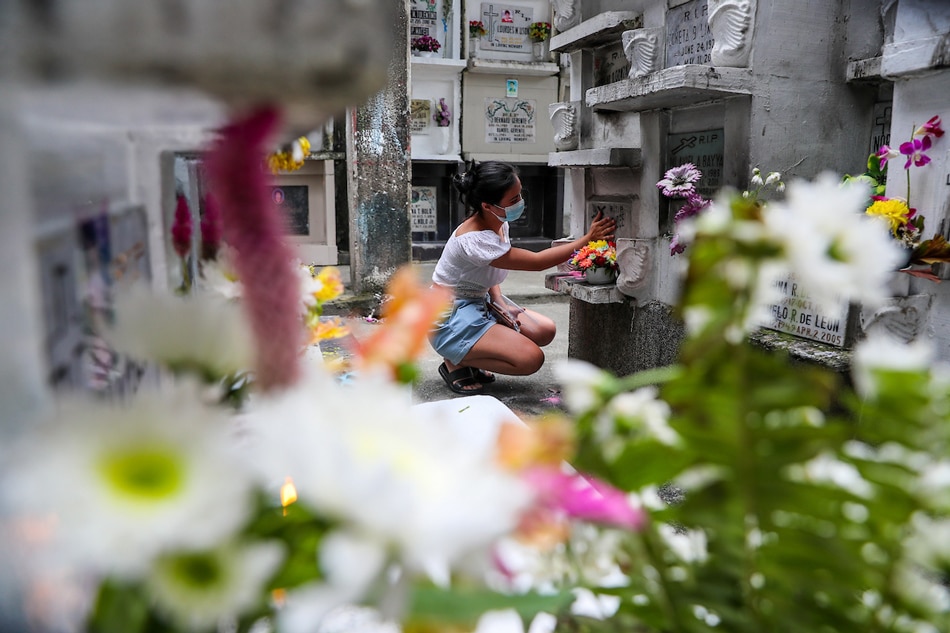Lawmaker wants fewer non-working holidays for the PH
ADVERTISEMENT

Welcome, Kapamilya! We use cookies to improve your browsing experience. Continuing to use this site means you agree to our use of cookies. Tell me more!
Lawmaker wants fewer non-working holidays for the PH
RG Cruz,
ABS-CBN News
Published Aug 12, 2022 05:37 PM PHT
MANILA -- Albay 2nd District Representative Joey Salceda has introduced a bill that will reduce the number of non-working holidays in the country.
MANILA -- Albay 2nd District Representative Joey Salceda has introduced a bill that will reduce the number of non-working holidays in the country.
In his House Bill 672, or "Holiday Rationalization Act of 2022," Salceda said he wants to rationalize holidays by limiting regular holidays, which are non-working days, to 9 only.
In his House Bill 672, or "Holiday Rationalization Act of 2022," Salceda said he wants to rationalize holidays by limiting regular holidays, which are non-working days, to 9 only.
Under the proposal, only the following would be considered regular non-working holidays:
Under the proposal, only the following would be considered regular non-working holidays:
-New Year's Day (January 1)
-Good Friday
-Eid’l Fitr
-Labor Day or the Monday nearest May 1
-Independence Day (June 12)
-All Saints’ Day (November 1)
-Bonifacio Day (November 30)
-Christmas Day (December 25)
-Rizal Day or the Monday nearest December 30
-New Year's Day (January 1)
-Good Friday
-Eid’l Fitr
-Labor Day or the Monday nearest May 1
-Independence Day (June 12)
-All Saints’ Day (November 1)
-Bonifacio Day (November 30)
-Christmas Day (December 25)
-Rizal Day or the Monday nearest December 30
ADVERTISEMENT
The following, meanwhile, will be considered special days. Special days are working days, but employees will be given an allowance of 7 non working days to commemorate their chosen special days as agreed upon with their employers:
The following, meanwhile, will be considered special days. Special days are working days, but employees will be given an allowance of 7 non working days to commemorate their chosen special days as agreed upon with their employers:
-Chinese New Year
-EDSA Revolution Day or the Monday nearest February 25
-Maundy Thursday
-Eid'l Adha
-Araw ng Kagitingan or the Monday nearest April 9
-Iglesia ni Cristo Founding Anniversary (July 28)
-Ninoy Aquino Day or the Monday nearest August 21
-National Heores Day / last Monday of August
-Immaculate Conception of the Blessed Virgin Mary (December 8)
-Christmas Eve (December 24)
-Last day of the year (December 31)
-Chinese New Year
-EDSA Revolution Day or the Monday nearest February 25
-Maundy Thursday
-Eid'l Adha
-Araw ng Kagitingan or the Monday nearest April 9
-Iglesia ni Cristo Founding Anniversary (July 28)
-Ninoy Aquino Day or the Monday nearest August 21
-National Heores Day / last Monday of August
-Immaculate Conception of the Blessed Virgin Mary (December 8)
-Christmas Eve (December 24)
-Last day of the year (December 31)
The bill also allows each local government unit to have only one local holiday by law or ordinance to commemorate its founding aniversary or its heroes, or to celebrate its fiesta.
The bill also allows each local government unit to have only one local holiday by law or ordinance to commemorate its founding aniversary or its heroes, or to celebrate its fiesta.
In his explanatory note, Salceda noted that the Philippines has one of the most number of holidays in the world.
In his explanatory note, Salceda noted that the Philippines has one of the most number of holidays in the world.
“With twenty-one (21) to twenty-five (25) public holidays per year, the Philippines is one of the top countries in the region and among the most prolific in the world with the most holidays. Public holidays in the Association of South East Asian Nations (ASEAN) average fifteen (15) holidays only per year,” Salceda said.
“With twenty-one (21) to twenty-five (25) public holidays per year, the Philippines is one of the top countries in the region and among the most prolific in the world with the most holidays. Public holidays in the Association of South East Asian Nations (ASEAN) average fifteen (15) holidays only per year,” Salceda said.
“This bill aims to provide the employers a stable and more predictable environment for their business operations. The reduced nonworking days, which is on the ASEAN average, will also give the country more competitiveness," he explained.
“This bill aims to provide the employers a stable and more predictable environment for their business operations. The reduced nonworking days, which is on the ASEAN average, will also give the country more competitiveness," he explained.
ADVERTISEMENT
ADVERTISEMENT



